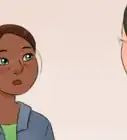This article was co-authored by Trudi Griffin, LPC, MS. Trudi Griffin is a Licensed Professional Counselor in Wisconsin specializing in Addictions and Mental Health. She provides therapy to people who struggle with addictions, mental health, and trauma in community health settings and private practice. She received her MS in Clinical Mental Health Counseling from Marquette University in 2011.
There are 7 references cited in this article, which can be found at the bottom of the page.
This article has been viewed 14,703 times.
PTSD is a condition that affects your entire life, including your relationships. You may get to the point where you want to tell your friends about your condition. This can deepen the friendship you already have and open up avenues for your friends to offer you support. If you want your friends to know about your PTSD, you can learn the best way to tell them about your condition.
Steps
Choosing Which Friends to Tell
-
1Decide which friends you want to tell. Deciding to share your PTSD with your friends is a huge step. There may be some friends you are closer to than others, or friends you feel more comfortable around. You may not want all your friends to know, but only a few select friends. When you make the decision to tell your friends, decide who you want to share the information with.[1]
- You are in control of who knows about your PTSD. You get to choose who you share the information with.
-
2Determine why you want to tell your friends. If you are thinking about telling your friends about your PTSD, you probably have a reason. Think about why you want to tell your friends. Are you looking for support? Do you want the friendship to grow so you can become better friends? Knowing why you want to tell your friends can help you figure out what to say to your friends and what to ask from them.[2]
- You may have no reason you want to tell your friends other than you don't want to hide who you are. You may want to unburden yourself by sharing your experience with someone. Any reason you choose to tell your friend is a valid one.
- If your friends are close to you, chances are, they already know something is going on with you, but not have a name to put to your behavior. By sharing this news with them, you are helping them understand your behavior.
Advertisement -
3Choose people who are trustworthy and understanding. Your PTSD and your trauma are very personal for you. This means you want to be selective with the people you choose. Tell people who are trustworthy and who can be supportive people in your life.[3]
- Will your friends be understanding when you tell them this information about yourself? Will they be able to handle the fact that you have PTSD?
- Refrain from telling people who are negative, overly critical, or unsupportive. You may also want to avoid telling people who gossip or can't keep secrets if you want your condition to remain private.
-
4Make a mental or physical list. As you are deciding who to tell, make a list of people you want to share your experience with. This can be a mental list or a physical list on a piece of paper. You can order the people in the list by who you want to tell first, or group a few together if you want to tell two or three people at the same time.[4]
- You may want to separate the people into different categories, based on what or how much you want to tell them.
- You may want to jot down what you want to tell each person. This can help you get out what you want to say in case you get nervous or upset while you are telling them.
Deciding How to Tell Your Friends
-
1Write down what you want to say. Sharing your experience with another person can be extremely stressful and emotional. You may get upset, confused, or so stressed that you can't think straight. To help with this, you may want to write down what you want to say to your friends.[5]
- You can make a list with bullet points that outlines things you want to cover.
- You may choose to write a prepared statement to read to your friends. If you do this, tell them that it is easier for you to do it this way.
- For example, you may write down, "You have been asking me if I'm okay lately. I wanted to share something with you. I have been diagnosed with PTSD. I just began therapy, but I feel it's related to _________."
- You can anticipate questions your friends might ask and write the answers down. For example, your friends might want to know what it's like having the condition or how you're coping. You may also want to find some literature on PTSD and share the symptom list with your friends, and provide them with information on what is most difficult for you to cope with.
-
2Realize that your friends may already suspect something is wrong. If you spend a lot of time with your friends, they may already know that something is wrong. They may have noticed your symptoms, like your anxiety, jumpiness, or alertness. This can be a good thing. Your friends may already be concerned and want to know what is causing you to act the way you do.[6]
- Friends of people with PTSD may feel helpless because they don't know what is even wrong with the person. They also may feel rejected because of a person with PTSD's behavior, especially if the person with PTSD has been pushing their friends away.
- When you prepare to tell your friends, consider your actions towards them and address that.
- You may want to start telling your friends with a statement like, "You may have noticed that sometimes I am not myself" or "You probably have seen that I am more alert or anxious at certain times."
-
3Learn about PTSD. As you prepare to tell your friends about your PTSD, learn as much as you can about the condition. Think about what your condition means for you and your relationship with your friends. This can help you answer any questions or address any concerns your friends may have. You will also be able to help them understand what you are going through.[7]
- You may want to compile a list of resources for your friends in case they want to read more about PTSD. You can also print out basic information to let them read after you tell them.
-
4Practice telling your friends. Telling your friends about your PTSD can be very stressful. If you think you are going to have problems telling your friends, then practice what you are going to say before you tell them. Say everything you want to say to your friends out loud to yourself. This can help you feel comfortable with the words you have to say to your friends.[8]
- You may even want to practice in front of a mirror, or record yourself as you go through your speech.
Telling Your Friends About Your PTSD
-
1Choose the right time. When you tell your friends about your PTSD, try to pick a good time. Choose a time that is convenient for all of you. Allow plenty of time to talk with your friends so you are not rushed. Schedule some extra time in case you are nervous or find it difficult to share your experience.[9]
- Reschedule with your friends if you are not feeling up to telling them when you had planned to.
-
2Tell your friends one at a time. Telling your friends about your PTSD can be really difficult and emotionally taxing. Because of this, you may consider telling your friends about your condition one at a time. This lessens the stress for you because you only have one person to worry about as you tell them about your situation.[10]
- You can make a list of the order that you want to tell your friends in. Start with those you want to tell the most or those who you think will be the most understanding and supportive.
- Telling one friend can give you confidence and make it easier to tell other friends.
-
3Stagger the information you tell your friends. Just like you don't have to tell everyone at once, you don't have to tell your friends everything about your situation at one time. You can edit the details that you give your friends, telling them only what they need to know or what you feel comfortable sharing for the moment and leaving other details for later.[11]
- For example, you may not want to go into the full details of your trauma. You may only want to say that you experienced a trauma, or tell your friends the type of trauma you experienced. You might say, "I don't feel comfortable going into all the details today, but I had a really bad experience, and it's still affecting me right now." If your friends ask for more details, just say, "Right now I don't feel comfortable sharing those details. I will tell you more when I feel ready."
-
4Keep in mind that you can withhold some information. Your friends may have a lot of questions for you. They may not understand the condition fully, or they may want to know more about your trauma than you are comfortable sharing. If you are not comfortable answering a question, then let your friends know that. Don't feel bad about wanting to keep some things private.[12]
- For example, you may tell your friends, “I don't feel comfortable sharing that right now” or “I'm not ready to talk about that.” You may also say, “Talking about that is difficult and I would rather not” or “I want to focus on the now and my progress, not on the past and my trauma.”
- This doesn't mean your friends are nosy or insensitive to your needs. It probably means they care about you and want to have more information so they can help you.
-
5Be honest. Being honest with your friends when you tell them about your PTSD can help your relationship with your friends. It can strengthen the friendship and start to help your friend understand your condition and experience.
- You may feel a lot of different emotions, like sadness, anger, or anxiety. You may even feel detached or vulnerable. These are all valid emotions. You can share these with your friend to let them know how you are feeling.
- Being honest with your friends can help you to feel a deeper connection with them. You can share your experience, share your feelings, and even let your friends know why you are acting the way you are. Your friends can help support you.
-
6Outline the symptoms of PTSD. Your friends are probably not familiar with PTSD. They probably don't know what it means that you have PTSD, so you should be ready to explain to your friends what the symptoms of PTSD are.Include both the physical and the emotional symptoms and how they affect you. You may want to explain how some of your past behavior has been symptoms of PTSD.[13]
- You may tell your friends that you think about your trauma a lot though you don't want to and it causes anxiety. You may need to explain that you get upset if triggered.
- You can explain that you need to stay away from reminders of the trauma for the moment. You can tell your friends about what you do to calm yourself down when you encounter a reminder of your trauma. If you're isolating yourself, you may explain to your friends that you have little interest in socializing or in activities that you used to enjoy.
-
7Tell your friends about any triggering activities. Triggers are reminders of he trauma you experiences and they can include lots of different things, such as scenes on TV or in a movie, a loud noise, a song on the radio, a scent, or a location.[14] [15] If you plan on spending time with your friends, you should tell them about any activities that are triggering for you. Explain that you cannot participate in these activities, or may not be able to do them all the time.[16]
- You may tell your friends that things that seem normal to them may upset or trigger you. For example, going to see certain movies may trigger you. Tell your friends what kinds of subjects you need to avoid. You may say, "Because of my trauma, movies with intense war scenes/graphic depictions of death or torture are triggering for me. Can we go see another movie instead?" or "The sound of loud explosions or other loud noises can trigger me. Can we see a movie without those things?"
-
8Let your friends know how to help you. Your friends probably won't know how to help you. They probably have never had any friends with PTSD before. If you have flashbacks, get angry, or are easily triggered, you should tell your friends what you need from them to help you through these times. Give your friends details about how they can help you, how to act when this happens, or what to do if this happens to you. This can make situations easier for you and your friends.[17]
- For example, you may need physical or emotional space if you are having a flashback. You may need your friend to talk you through a triggering situation. Just let them know what they can do to support you so they can be there for you.
- You may say, "When I have a flashback, I just need space. I know you want to help, and this is the best way to help me" or "If I have a flashback, I need you to help talk me through it."
-
9Enlist your friends' help to steer clear of alcohol and drugs. Because of the strong emotions you may be experiencing, you might feel the urge to drink alcohol or even use illegal substances to cope. However, these measure can intensify your PTSD symptoms and may also interfere with your treatment.[18] To avoid using alcohol and drugs, you might try asking your friends for help.
- For example, if your friends go out drinking on Friday nights, then you can tell your friends, "I know we used to go drink often, but alcohol is not healthy for me. Can we do something different this week, like going to see a movie or going bowling?"
References
- ↑ https://www.verywell.com/how-do-you-tell-someone-about-your-ptsd-diagnosis-2797261
- ↑ http://www.mentalhealthamerica.net/conditions/post-traumatic-stress-disorder
- ↑ http://www.helpguide.org/articles/ptsd-trauma/ptsd-in-the-family.htm
- ↑ https://www.verywell.com/how-do-you-tell-someone-about-your-ptsd-diagnosis-2797261
- ↑ http://www.mentalhealthamerica.net/conditions/post-traumatic-stress-disorder
- ↑ http://www.mentalhealthamerica.net/conditions/post-traumatic-stress-disorder
- ↑ https://www.verywell.com/how-do-you-tell-someone-about-your-ptsd-diagnosis-2797261
- ↑ http://www.mirecc.va.gov/VISN16/docs/Talking_with_Kids_about_PTSD.pdf
- ↑ https://www.verywell.com/how-do-you-tell-someone-about-your-ptsd-diagnosis-2797261
- ↑ http://www.mentalhealthamerica.net/conditions/post-traumatic-stress-disorder
- ↑ http://www.mentalhealthamerica.net/conditions/post-traumatic-stress-disorder
- ↑ https://www.verywell.com/how-do-you-tell-someone-about-your-ptsd-diagnosis-2797261
- ↑ http://www.mentalhealthamerica.net/conditions/post-traumatic-stress-disorder
- ↑ http://www.ptsd.va.gov/public/types/war/terrorism-war-affect-vets.asp
- ↑ http://www.helpguide.org/articles/ptsd-trauma/post-traumatic-stress-disorder.htm
- ↑ http://www.mentalhealthamerica.net/conditions/post-traumatic-stress-disorder
- ↑ http://blogs.psychcentral.com/wellness/2011/05/you-me-and-ptsd/
- ↑ http://www.helpguide.org/articles/ptsd-trauma/post-traumatic-stress-disorder.htm
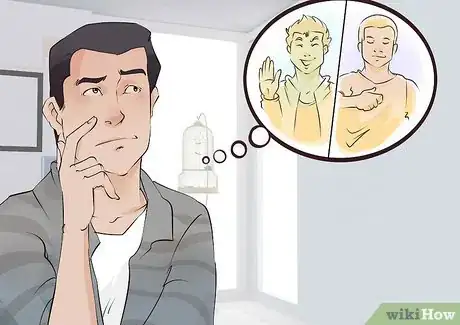
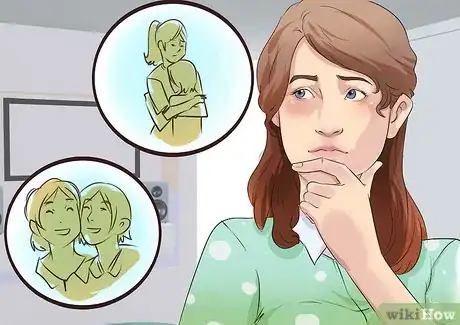
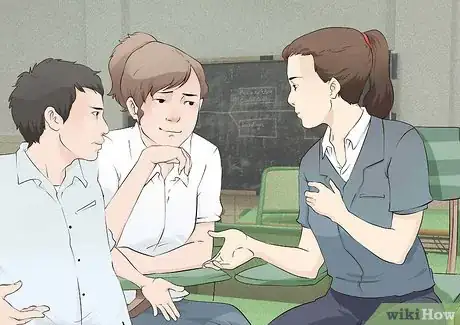
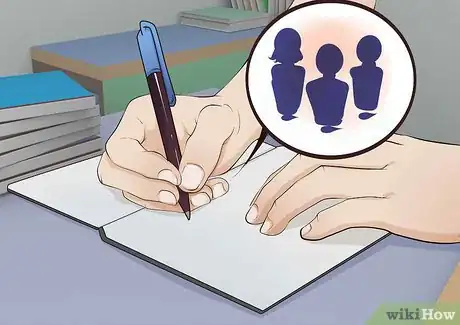

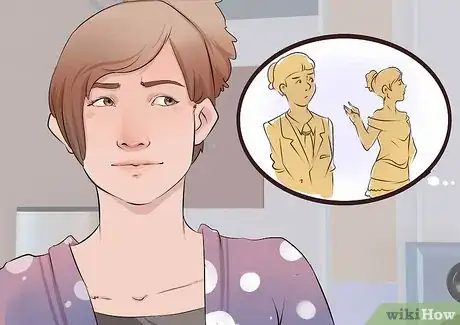
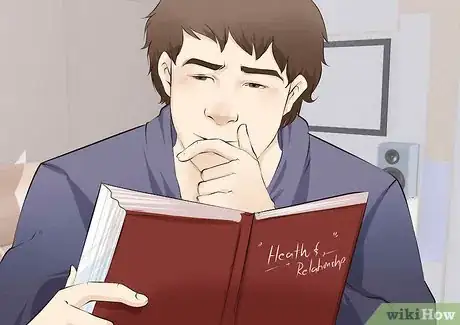
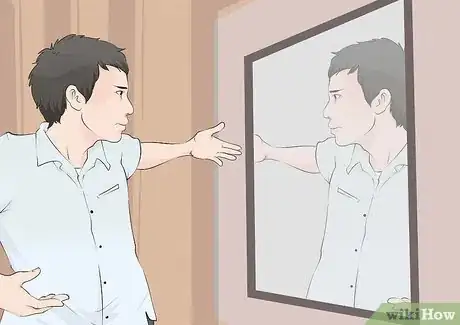
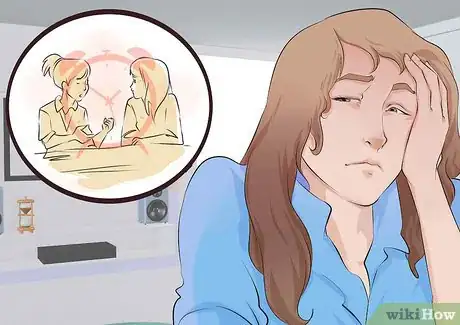
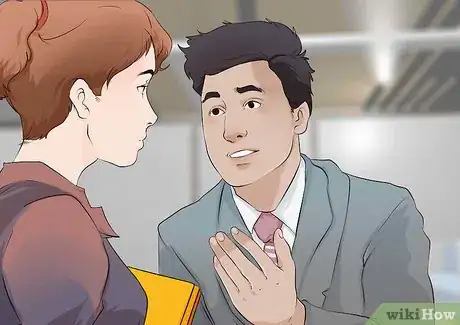
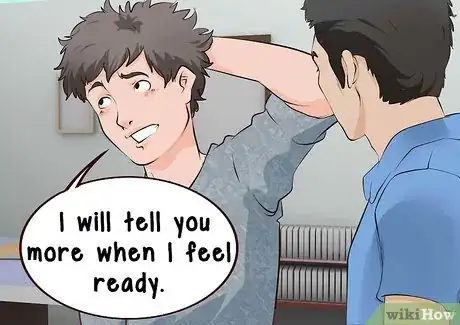
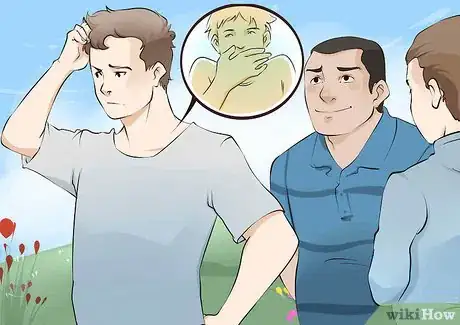
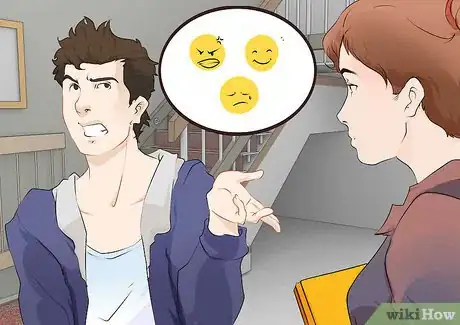
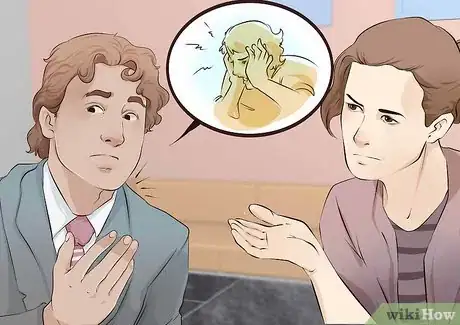
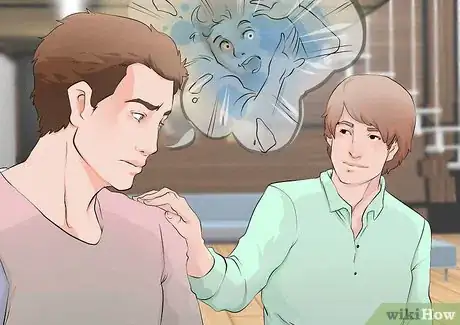
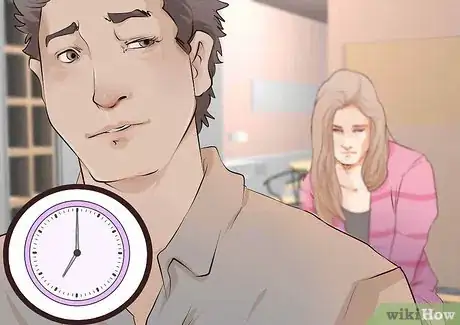
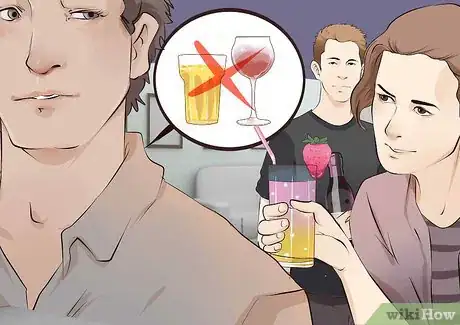
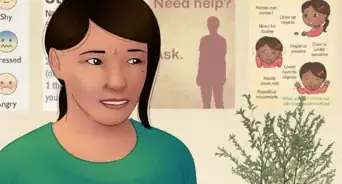
-Step-13.webp)












-Step-13.webp)

